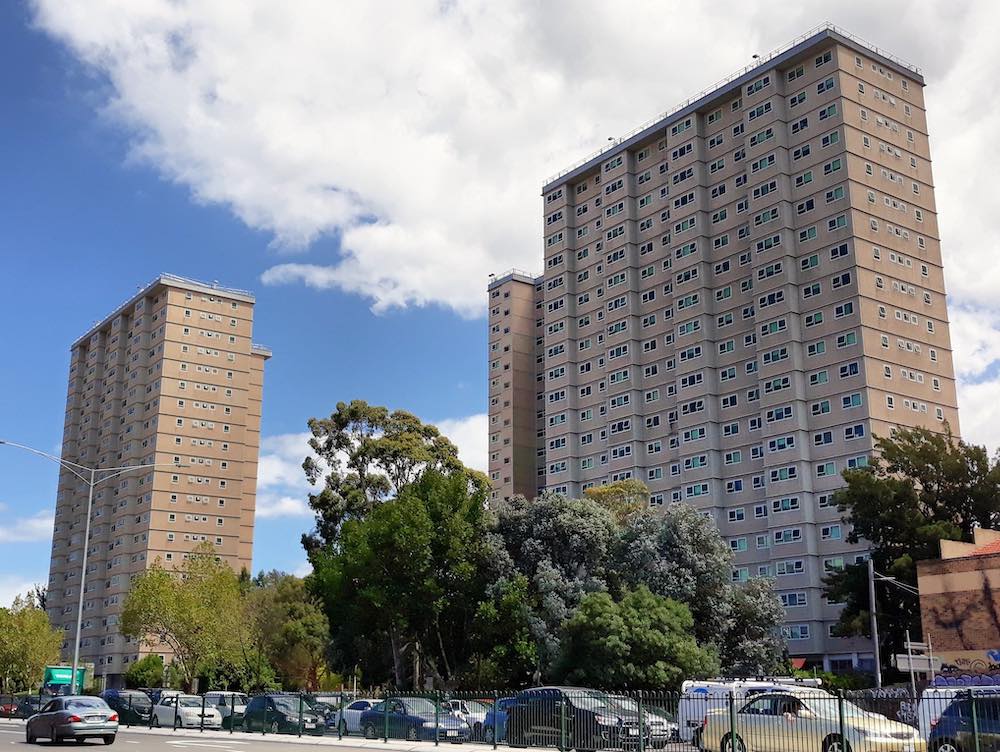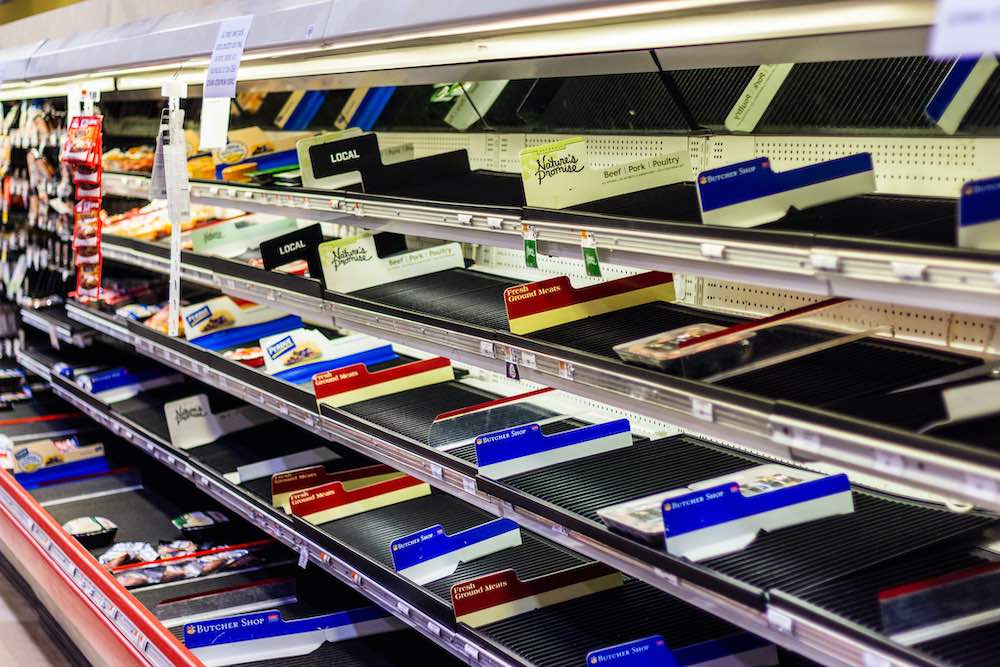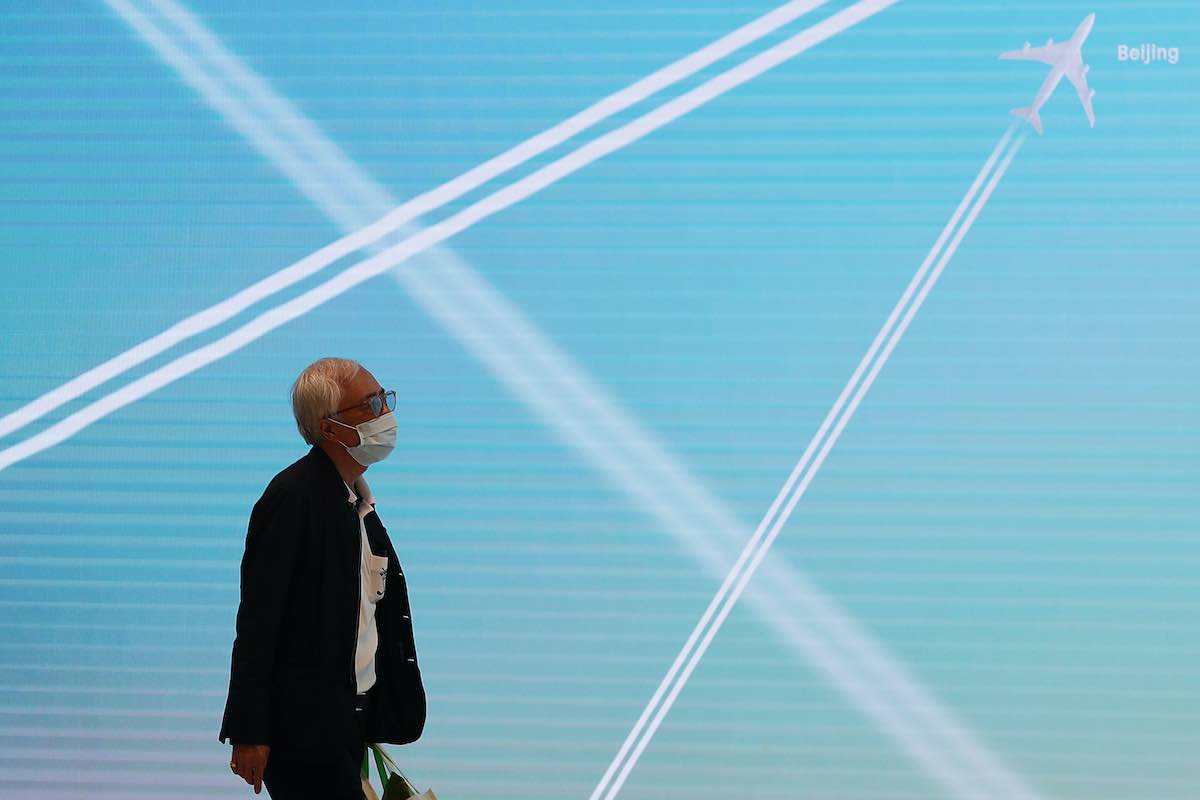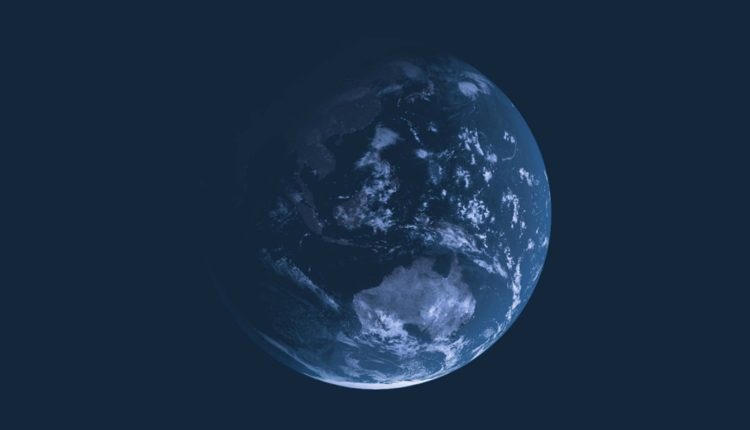Coronavirus pandemic | The Interpreter
Today, as it has for nine months, the Australian government’s Smartraveller website tells me “do not travel”. Every country on the map is coloured red. To leave the country, I would need an exemption on compassionate grounds. Apparently it’s a high bar.
For the last few years, I averaged 100 flights a year, carbon-offset, commuting from Melbourne to Canberra and internationally. When I moved jobs recently, I was excited to reduce this to 75 and have more time with my family. I never imagined how much.
Working in the field of international relations, I think about what’s happening in the world and how it affects Australia. So when in January I hear of Covid-19, I begin to think about the impact on geopolitics. I imagine that there will be two types of countries: ones that have no hope of containing the virus and where it becomes endemic, as has happened in India, and ones which manage to contain the virus but then have to control their borders to prevent reinfection, as occurred in New Zealand.
Until a vaccine is widely available, the cost of controlling the virus will be closing off to keep danger outside. The risk will be closing off international engagement.
That’s the dual challenge for Australia in 2020: how to deal with the pandemic without cutting itself off from the world. This is my story of a year in isolation spent thinking about connection.
In January, everyone’s focus is on China. I give a talk to the Office of National Intelligence focusing on what Covid-19 means for Beijing.
If they’ve been to China recently, teachers at my Chinese language classes go into self-isolation, well ahead of any government advice. One of the students, in his 70s, asks me to tell him my travel history. I’m not offended. I just transited through Hong Kong on my way back from New Delhi. I could have caught the virus. I was lucky.
I go to a City of Melbourne function where the Town Hall facade is floodlit red to show support, with hundreds chanting “Wuhan jiāyóu”. Later I ask my teacher to translate, and she says it’s like barracking – so perhaps “C’arn Wuhan”, making it rhyme.
I hashtag #IWillEatWithYou when I visit my favourite Chinese restaurant.
As I drop my son off in Canberra for his first year at university – with bushfires still smoking, one tragedy bleeding into another – there are signs at the student accommodation telling returning students how to self-isolate. They’re lucky to get back in time.
As the borders close and the air routes shut, it’s bad luck if you aren’t where you want to be.
By February, Australia closes its borders to China. Returnees from Wuhan uncomplainingly quarantine at Christmas Island then Darwin. The Chinese strain of the virus never reaches significant transmission. The first wave silently moving through the Australian community mainly comes from travellers from the United States, Europe and cruise ships.
Australia closes the border to Iran, but not to the US. My father in Mornington would probably know some of the crowd who brought back infections from Aspen in the US. Again, we’re just lucky.
I speak at a function to develop future leaders’ Asia capability. No one knows whether to shake hands, and it makes us sheepish. I talk about the stereotypes of how Asians see Australia: as subservient, selfish, rich, racist, transactional and moralistic. And how we can try to counter these.
In March I start planning to work from home. My graduate colleague tells me his three housemates have already lost their jobs and have moved back with their parents.
People organising conferences don’t want to cancel. But employers and insurers are nervous about travel. I pick up my visa for an Indian defence conference the day the borders slam shut.
My last normal moment: seeing the Women’s T20 World Cup Final. I hesitate, but I go and celebrate amid the 86,000 Australians and Indians crowded in Melbourne Cricket Ground.
Early in the lockdown, I conscientiously do yoga on my balcony every day. Passenger planes have almost disappeared from the sky. Now I only see the tiny props. And the helicopters landing on the hospital roof.
As the borders close and the air routes shut, it’s bad luck if you aren’t where you want to be. I interview diplomats about their work repatriating 16,500 stranded Australians, even using a cargo plane delivering cyclone aid to give Australians a ride home.
Then the virus is loose from Melbourne quarantine. The cap on arrivals is reduced. It’s reported that 25,000 then 27,000 Australians are unable to return from overseas.
A colleague shares that she can’t visit her dying father in the US. She wants to go, but isn’t sure she’ll be allowed back. It’s the right call. Later I see news of a small boy stuck visiting his grandparents in Vietnam. His parents look beside themselves.
Prime Minister Scott Morrison tells international students and temporary visa holders to return to their home countries. Many can’t. I talk to a graduating student who can’t go back to Mongolia because the border is closed. It takes seven months. Another from Mauritius quickly organises her enrolment so her visa doesn’t run out. She knows of friends stuck sleeping in airports, unable to stay or go.
With no jobs and no federal assistance, a line of international students snakes around Melbourne Town Hall for food relief. I’m thankful someone is doing something. Then a Brazilian student tells me how Australia’s response is being compared to the generosity of Canada and the United Kingdom. On social media, those who feel abandoned are telling future students not to come.
I keep checking on my “hostee”, a scholarship student from Bangladesh. I joined the University of Melbourne’s welcome program when I heard that most international students never go inside an Australian home. I can’t ask her to visit, but I pay a taxi to deliver toys for her daughter.
I write about the war of words between the US and China over Covid-19. Will the US end up being seen as the victim of external forces or its own mismanagement? Will China end up being seen as the country that unleashed the virus or the one that showed the world how to overcome it? Lowy Institute polling shows that Australians are unimpressed with both.
In April, all alone, Australia calls for an inquiry into the origins of Covid-19, which China views as targeting it. China’s ambassador wonders aloud why Chinese consumers would support a country that is not so friendly, even hostile. Eventually Australia works with other countries to adopt a more neutral proposal, but the damage is done.
Asian-Australians report an increase in racial abuse. An Indonesian colleague says he thinks people are standing further away from him, but how would you know? When two international students are attacked at the University of Melbourne, I listen to the Vice-Chancellor’s angry, disgusted condemnation. The Australian National University’s Centre for Asian-Australian Leadership encourages people to call out racism.
I give a webinar on optimism in international relations. I talk about disaster fiction and why the worst-case scenarios won’t eventuate. I survey the audience and find the optimism count has gone up. So that’s my good deed for the month.
In Chinese class, I’m making progress. It’s cheering to be able to do something I couldn’t before. On Twitter, I encourage colleagues who have gone back to learning Japanese and Indonesian. An act of hope that one day we’ll be able to use our halting skills to connect.
I still have nightmares that I’m about to miss a plane, even though they’re almost all grounded.
The collapse of international air travel is unprecedented. Even in the Second World War, a route operated. You’d have to go back to the First Fleet awaiting resupply.
Indigenous Australians were never isolated. They had trade and cultural ties. For National Reconciliation Week in May, I organise a seminar looking at First Nations’ connections with Macassans. Even with no common language, they managed to establish mutually beneficial seasonal trade.
I still have nightmares that I’m about to miss a plane, even though they’re almost all grounded. On a cold night, I dream of my trip to Antarctica with my daughter last year. If we’d travelled 12 months later, we would have been on one of the plague ships going from harbour to harbour, rejected by all. The Greg Mortimer is allowed to dock in Montevideo because today’s leaders remember Australia’s compassion to refugees fleeing Uruguay’s dictatorship in the 1970s. What you give now will be returned to you.
At end of financial year, I donate to the Asylum Seeker Resource Centre. It’s estimated that more than 1.1 million temporary visa holders in Australia can’t access any government support. My body isn’t big enough to hold the shame.
My son comes home from university for semester break. As Melbourne’s second wave rolls in – not due to the Black Lives Matter protests, despite the relentless misinformation – he makes it back to Canberra just in time before the border with Victoria is closed. Our neighbours in the North Melbourne government housing towers are shut in, the beginning as the city tips into one of the world’s longest lockdowns.

Australia releases its new international development policy Partnerships for Recovery. I write on the biggest negative: no new money, just reallocating the funds for volunteers and scholars who can no longer travel. In the last six years, Australia’s overseas development program has been cut by 27%. Australians think we spend 14% of the federal budget on aid. It’s 0.8%.
Australia releases its Defence Strategic Update in July. The headline figure is $270 billion (that’s 67 years of the aid budget). I write on the tendency to view international issues through a security lens and the self-fulfilling prophecy of treating China as an enemy. Former defence secretary Dennis Richardson warns against “national security cowboys” putting the nation’s interests at unnecessary risk. The Lowy Poll reports the five threats that concern Australians most: drought, pandemics, global economic downturn, environmental disasters and climate change. None will be helped by military hardware.
Shadow foreign affairs minister Penny Wong calls on Australia to develop greater foreign policy ambition, bringing a similar sense of urgency and purpose as we did to suppressing the virus at home.
The Department of Foreign Affairs and Trade cuts jobs.
I’m on a panel with Australian Institute of International Affairs national president Allan Gyngell, who says that in the new Covid-19 world, Australia will be poorer, weaker and more isolated. I write on foreign policy identity politics and the danger of playing with Australia’s security for domestic advantage.
In August, the government announces a foreign relations bill to give Foreign Minister Marise Payne power to veto international arrangements made by local councils, state governments and universities. I write against it. Have we reached the point where these are suspect: a semester abroad, a student home stay, a trade mission, an arts exchange?
When I appear at a Senate inquiry into the legislation, I’m not asked to denounce the Chinese Communist Party, but three Chinese-Australians are.
In a tit-for-tat between Canberra and Beijing that only becomes clear over time, ASIO raids Chinese journalists’ homes in an investigation into a NSW parliamentarian and his staffer. Journalists from the last two Australian media outlets with a presence in China are spirited home.
In September, I sit on the selection panel for New Colombo Plan scholarships for young Australians to study and work across Asia. For three days on Zoom, I hear brilliant, motivated students talking about their great plans for 2021. I check in with one of the previous winners, who never got to travel. She says she’ll go when we’re back to normal, soon. In lockdown, I’ve got used to having no desires for the future. Hope hurts.
In class, we look at a brochure for Chinese tourists and plan a sightseeing tour of Melbourne. I suggest Puffing Billy railway and Healesville Sanctuary zoo. I think about all the attractions and livelihoods gone. Lavender farms and opal stores and the Great Ocean Road.
More could be done to let tourists visit Australia. Those from places where Covid-19 is endemic might not mind quarantining to live like they did before: a sort of time travel to a pre-Covid era. There’s a deep human need to experience. I’m old enough to remember that before travel was easy and affordable, it was an adventure which could change your life. That’s what I’d choose to use my carbon allotment for: the sights and sounds of new encounters.
I realise that I haven’t left the house in three months, my daughter in six. My husband is immunocompromised. This changes your calculation. Is this outing really worth risking his life?
Australia does best when it’s open to the world, not in times of isolation and economic nationalism.
I speak by video to a friend in Rhode Island. The US case numbers are extraordinary, yet life is mostly going on as normal around him. We’re living in different worlds.
Qantas airline asks if I want to buy a case of the little wine bottles they used to serve in-flight. I buy some. I think it might help me drink less.
The university sector is in crisis. Our third-largest export industry joining tourism, our fourth. For universities, the disaster feels deliberate. Government decisions had consequences: citizens and permanent residents could return, but those with a student visa could not. JobKeeper, the government support package for workers during the pandemic, was amended three times to ensure that universities weren’t covered. Pilot programs for a few hundred international students to return to South Australia and the ACT are announced then postponed. It’s the end of November before a plane with 63 students returns via Darwin. Proposals from student accommodation providers are rebuffed. With no plan for 2021, there’s no hope for first semester enrolments. Education used to contribute $37 billion to the Australian economy.
A lesson from lockdown: 24-hour news doesn’t make you feel connected. But parcels do.
Someone says she works night shift at the supermarket fulfilling online orders, and without even thinking I thank her for her service. I mean it.

I’m not in Canberra for the federal budget announcement in October. I can’t go five kilometres from my house. Online I check that, yes, the Department of Foreign Affairs and Trade’s funding allocation is the lowest percentage in Australia’s history. There’s a tiny piece of good news: $300 million to fight Covid-19 in the Pacific and Timor-Leste.
I look at the money being spent in the budget – the biggest in my lifetime – and wonder where Australia’s future prosperity will come from. Not education and tourism.
Young people are bearing the brunt of this pandemic. What plan are they being offered? On climate, 60% of Australians want the economic recovery to be driven by renewables. But gas chooses itself.
Someone posts on LinkedIn that she listened to the budget with tears in her eyes, feeling we’re all in this together. I can only think of who’s been left out.
The third of our exports that go to China are looking shaky. Chinese investment in an Australian dairy company is blocked on national interest grounds. Getting out of a recession while antagonising our largest trading partner will be tough.
Australia does best when it’s open to the world, not in times of isolation and economic nationalism. We’re a country of immigrants, with half of Australians born overseas or with a parent who was.
Without migration, our economy won’t grow. It’s estimated that Australia will be half a million smaller in 2022, with flow-on effects from construction to retail. Migration could restart with user-pays quarantine, but it’s not on the agenda.
I read that a primary school is cancelling its long-standing Vietnamese program to teach Italian instead. Vietnam has been a big winner this year, and its economy is projected to double in the next decade. When we indulge in nostalgia, we hurt ourselves.
I write on how the US election may mean the end of Australia’s American dream.
Are we taking some first steps towards the long-hoped-for travel bubble? New Zealanders travel to Sydney without quarantining. The first chance to see a granddaughter. The first kiss in eight months. When it goes wrong – the Kiwis don’t stay put – it doesn’t build confidence.
After a false start, it’s announced that Darwin will again host returnees. Repatriation flights restart from London. Then Johannesburg and New Delhi. There haven’t been commercial flights from India for seven months. A maths problem: if the Northern Territory takes 500 returnees a fortnight, how many months will it take to get the now 32,000 home?
A group of Australians stuck in the Philippines are trying to charter a boat to return.
Then 26 October is double doughnut day. No new cases, no deaths. An exhausted Victorian Premier Daniel Andrews announces an end to Melbourne’s lockdown after 111 days. Only a handful of places – Japan, South Korea, Singapore, Vietnam and Hong Kong – have so successfully defeated a second wave.

My husband tells me that in July, Victoria had the same infection rate as France. The day Melbourne comes out of lockdown, France records 36,000 new cases. Its economy is among the worst-hit worldwide, along with the UK and Spain. State premiers were right not to see it as economy-versus-health.
In its downward spiral, the relationship with China hits a new low. Economic punishment signals China’s displeasure. Sector after sector is hit: barley, beef, lamb, wine, timber, cotton, coal – even lobsters. Scott Morrison demands an apology for an offensive tweet. I can’t see any sign that Australia has a plan to repair the relationship.
In November Victoria celebrates elimination day. Western Australia lifts its hard border. We deserve to congratulate ourselves. Yes, there will be outbreaks that will need to be contained quickly: in Adelaide, in Sydney’s Northern Beaches. But we’ve shown that we can.
I’m so proud of what we’ve achieved within Australia. I’m sad and frustrated about our lack of vision for anything beyond. Can we count on staying lucky as the world gets more contested and harder to navigate?
I speak on a panel with former race discrimination commissioner Tim Soutphommasane. He describes a “fortress Australia” mindset that’s taking hold. A mentality where Australia is retreating inward and views everything outside as a threat.
I watch independent MP Zali Stegall speak in parliament to introduce a Climate Bill. She warns that Australia will be isolated from our trading partners if we remain out of line with international expectations. Putting our head in the sand is not a solution.
I look up at the sky and see a plane. It’s December and there’s a passenger plane landing in Melbourne. Perhaps 2021 will be different. Can Australia face outwards with ambition? Or will we cut ourselves off from the world?
Melissa Conley Tyler


Comments are closed.